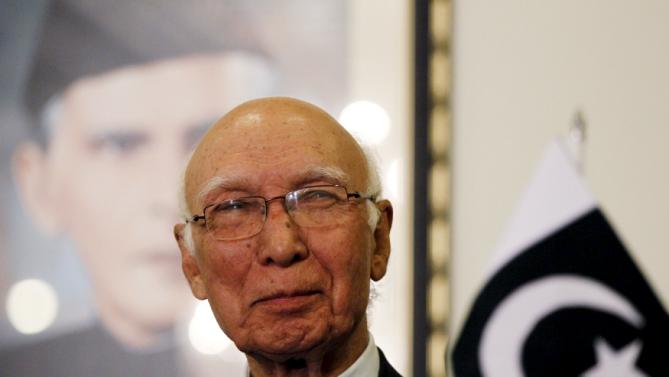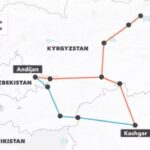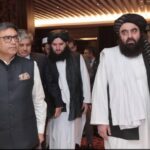Pakistan hands over dossier to UN on Indian interference and support to terrorism
UNITED NATIONS: Exercising its Right of Reply for responding allegations of injecting terrorism in the region leveled by External Affairs Minister Sushma Swaraj, Pakistan on Thursday submitted a dossier at the office of the Secretary General of the United Nations on Indian interference and support to terrorism, reports state run news agency APP.
The dossier is a set of three documents titled — India’s interference and support to terrorism in Balochistan, FATA through TTP and in Karachi. The document was handed over to the Chief of Staff Susana Malcorra by Ambassador of Pakistan in the United Nations Dr Maleeha Lodhi.
Advisor to Prime Minister on Foreign Affairs, Sartaj Aziz said each dossier comprises 15-20 pages and further discussion on UN action on the documents will take place later.
He said the documents contain ‘solid proofs’ and their content may be shared in due course of time. About Indian Foreign Minister’s speech at the UN earlier in the day, accusing Pakistan of abetting terrorism while demanding talks, Aziz dismissed the allegation and said “India is trying to avoid dialogue on one pretext or other and since all doors have been barred, we were left with no option but to hand it over the UN Secretary General”.
“While they are accusing us of sponsoring non-State actors, in Pakistan India’s state actors are involved in terrorist activities,” Aziz said. Prime Minister Muhammad Nawaz Sharif told the press earlier that the dossier containing proofs of New Delhi’s interference would soon be handed over to the UN. The Prime Minister said he had planned on handing over the dossier to his Indian counterpart Narendra Modi directly, but that meeting did not take place. In his speech to the UNGA, Prime Minister said, “wisdom dictates that our immediate neighbour refrains from fomenting instability in Pakistan. The two countries should address and resolve the causes of tension and take all possible measures to avert further escalation.” Advisor Aziz, who was flanked by Ambassador Maleeha Lodhi and Foreign Secretary Aizaz Ahmad, said Pakistan has always supported a dialogue with India for a peaceful resolution of all outstanding issues. He said the Joint Statement issued at Ufa, Russia, following the meeting between Prime Minister Nawaz Sharif and Narendra Modi, clearly states that the two sides would discuss all issues, and the meeting of the National Security Advisers would deal only with terrorism.
He said India insists that the talks should focus only on terrorism, while Pakistan stands for discussion on all issues.He said during the Composite Dialogue process the two countries held talks simultaneously on
8 different areas, “but now they [India] are only stuck on terrorism”.
Referring to incidents of firing by Indian troops along the Line of Control and the Working Boundary, Aziz said 900 such violations have been recorded in a period of 9 months.He said Pakistan has been stressing to make the United Nations Military Observer Group on India and Pakistan (UNMOGIP) more effective as it has the manpower and resources to monitor such violations and even determine who initiated the firing.
Sartaj Aziz said Pakistan conveyed its stance, in its statements at various UN fora and in its interaction with key world leaders, during the 70th anniversary session of the UN General Assembly.
Aziz termed the anniversary session as “very important” and said Prime Minister had an opportunity to share his views with the world leaders at five different Summits, and his meetings with world leaders.
To a question whether the US has played any role in defusing the tension, he said the United States of America supports dialogue between Pakistan and India.
About the situation in Afghanistan, he said Pakistan has serious concern over the developments, especially following the attack on Kunduz, the strategic Northern Afghan city, he said Pakistan stands for peace and stability in Afghanistan and looks forward to resumption of the Afghan-led and Afghan-owned reconciliation process.
He said the United States of America and China were fully supportive of this process.






